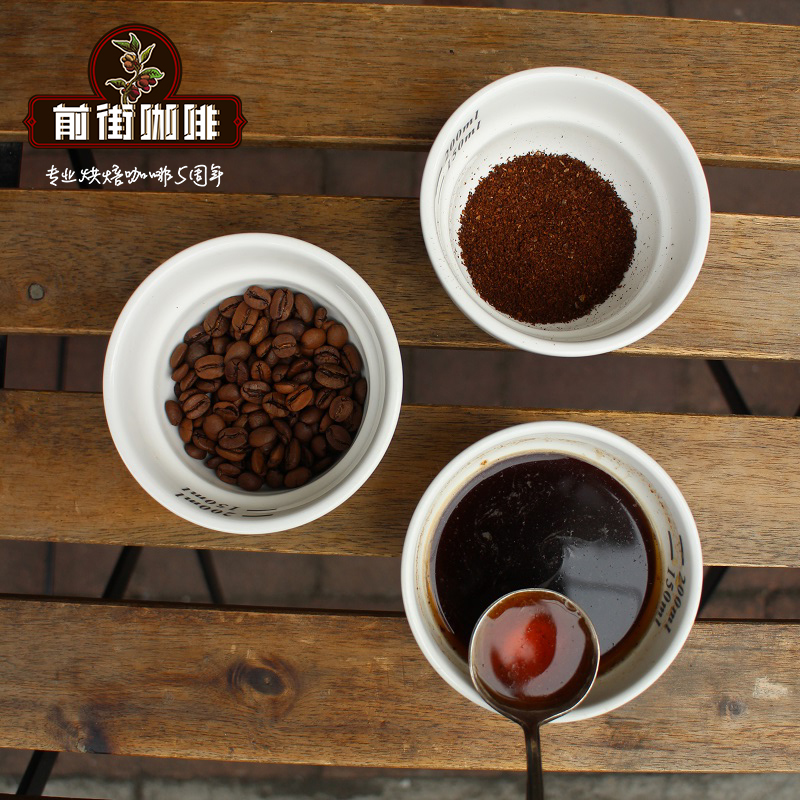Why Hawaiian Kona Coffee is Salty_Hawaiian Kona Coffee Bean Flavor Taste Characteristics

Professional coffee knowledge exchange More coffee bean information Please pay attention to coffee workshop (Weixin Official Accounts cafe_style)
Hawaii is the only state in the United States to grow coffee, which is grown on the five main islands of the Hawaiian archipelago: Oahu, Hawaii, Maui, Kauai and Mauroka. Coffee produced on different islands also has its own characteristics. Coffee from Kauai is soft and smooth, coffee from Mauroka is high in alcohol and low in acidity, and coffee from Maui is medium in acidity but has the strongest flavor. Hawaiians are proud of their 100% indigenous Arabica coffee beans.
Hawaii Island is the largest island in the Hawaiian Islands, so it is also called the Big Island. Kona coffee is produced in the west and south of Kona area of Hawaii Island. Coffee trees are spread all over the slopes of Hualalai and MaunaLoa, where the altitude is 150 meters to 750 meters, which is suitable for coffee growth.
The unique growth and climate conditions create the perfect flavor of Hawaiian Kona coffee: Hawaiian beach, monsoon and volcanic flavors. Real Hawaiian Kona coffee gives you a unique pleasure and leads you slowly into the transcendent state of coffee tasting. And this is all from the oldest Arabica coffee tree.
In 1813, a Spaniard first planted coffee in Oahu's Manoa Valley, which today is the main campus of the University of Hawaii. In 1825, an English agriculturist named John Wilkinson transplanted coffee seeds from Brazil to the coffee plantation of Chief Birch on Oahu. Three years later, an American missionary named Samuel Reverend Ruggles brought branches from Chief Birch's coffee tree to Kona. The coffee is a descendant of the Arabica coffee tree originally grown in the Ethiopian highlands, and Kona coffee continues its noble and ancient lineage to this day.
The earliest coffee plantations in Hawaii were based on large-scale coffee plantations, but coffee was not yet a widely grown crop worldwide, and production and sales of Kona coffee fluctuated. After the outbreak of World War I, demand for coffee increased dramatically, and the government bought coffee in large quantities for soldiers to keep them fit. The increase in demand triggered a price hike, and Kona coffee was no exception. The period between the outbreak of World War I and 1928 was the golden age of Kona coffee. But the Great Depression that followed dealt Kona another blow. In 1940, World War II drove coffee prices up again, and the U.S. government set a price cap to prevent excessive price increases. Even so, coffee farmers in Hawaii benefited a lot. Their transportation mode of transporting coffee fruits changed from donkeys to jeeps during this period.
In the 1970s and 1980s, Kona coffee prices went through several ups and downs, but it was during this period that Kona coffee established itself as the world's top coffee. Even though Kona coffee has become world-famous, its production remains relatively low.
Kona coffee has been grown in Kona since the early 19th century and has never been discontinued, and only here can coffee be called "Hawaiian Kona." Hawaiian Kona Coffee's green beans are usually 100 packs of single-serve coffee beans. Kona coffee beans are also often mixed with coffee beans grown elsewhere in the world to make coffee blends, and blends of Kona coffee beans with other beans are labeled "Kona Blend" on the package. Unfortunately, the content of kona in such blends can be very low, and the minimum content of kona in blends labeled "Kona" in Hawaii is only 10%. So if you're not in Kona, Hawaii, it's hard to have 100 percent pure Kona coffee beans.
● Kona coffee has always been grown using the family farming model. At first, only men were allowed to work in the coffee garden, but later women joined in. Hawaiian family production was more dependent on family effort than on hiring workers, so it was normal for Hawaiian families to have eight or nine children. Since then, new immigrants from the Philippines, the United States and Europe have come to Hawaii to engage in coffee farming. Over time, Hawaii has formed a social atmosphere centered on family culture and easy to absorb foreign culture, which has become a major feature of Hawaii.
Hawaii is also a paradise for coffee tasting and buying. Each island has several unique places for tourists and locals to taste and buy coffee, ranging from cozy shops to comprehensive coffee knowledge centers.
Hawaiian Kona coffee beans are the most beautiful coffee beans in the world. They are unusually full and shiny. Kona coffee beans are evenly shaped, with intense acidity and sweetness. They taste wet and smooth. Growing on a volcano, Hawaii's unique volcanic climate creates Kona coffee's unique aroma, and there is a high density of artificial cultivation, so each bean can be said to be spoiled "ladylike", beautiful, plump and baby-like skin.
● Hawaiian Kona coffee tastes fresh, crisp, medium alcohol, slightly sour, while having a strong aroma, long aftertaste. Best of all, Kona coffee has a blend of wine, fruit and spice aromas that are as charming as the colorful hues of this volcanic archipelago. The taste of Kona coffee generally falls into the milder category, so that some people think this mildness is synonymous with bland, and Kona is too refreshing and simple. But if you're one of those people who needs to get into shape with the aroma of coffee before you taste it, Kona is the coffee for you, because it's not as mellow as Indonesian coffee, not as strong as African coffee, not as rough as Central and South American coffee. Kona coffee is like a girl walking in the Hawaiian sun and breeze, fresh and natural, not warm.
Qianjie Coffee: Guangzhou's baking shop, small store but a variety of beans, can find a variety of famous beans, but also provide online store services. https://shop104210103.taobao.com
Important Notice :
前街咖啡 FrontStreet Coffee has moved to new addredd:
FrontStreet Coffee Address: 315,Donghua East Road,GuangZhou
Tel:020 38364473
- Prev

What is the flavor of Hawaiian Kona Coffee? introduction to the characteristics of Hawaiian Kona Coffee
Professional coffee knowledge exchange more coffee bean information please follow the coffee workshop (Wechat official account cafe_style) the real Hawaiian Kona coffee let people enjoy the unique pleasure, lead you slowly into the detached state of tasting coffee. And this comes entirely from the oldest Arabica coffee tree. Hawaii is the only state in the United States that grows coffee, which is grown in Charlotte.
- Next

The reason why Kona coffee in Hawaii is expensive _ where can I buy Kona coffee in Hawaii?
Professional coffee knowledge exchange more coffee bean information Please pay attention to the coffee workshop (Wechat official account cafe_style) Hawaii Kona coffee beans have the most perfect appearance, its fruit is extremely full, and bright, it is the most beautiful coffee beans in the world. Coffee is smooth and fragrant, with attractive nutty flavors and well-balanced acidity, like colorful spots on the island of Hawaii.
Related
- Detailed explanation of Jadeite planting Land in Panamanian Jadeite Manor introduction to the grading system of Jadeite competitive bidding, Red bid, Green bid and Rose Summer
- Story of Coffee planting in Brenka region of Costa Rica Stonehenge Manor anaerobic heavy honey treatment of flavor mouth
- What's on the barrel of Blue Mountain Coffee beans?
- Can American coffee also pull flowers? How to use hot American style to pull out a good-looking pattern?
- Can you make a cold extract with coffee beans? What is the right proportion for cold-extracted coffee formula?
- Indonesian PWN Gold Mandrine Coffee Origin Features Flavor How to Chong? Mandolin coffee is American.
- A brief introduction to the flavor characteristics of Brazilian yellow bourbon coffee beans
- What is the effect of different water quality on the flavor of cold-extracted coffee? What kind of water is best for brewing coffee?
- Why do you think of Rose Summer whenever you mention Panamanian coffee?
- Introduction to the characteristics of authentic blue mountain coffee bean producing areas? What is the CIB Coffee Authority in Jamaica?

